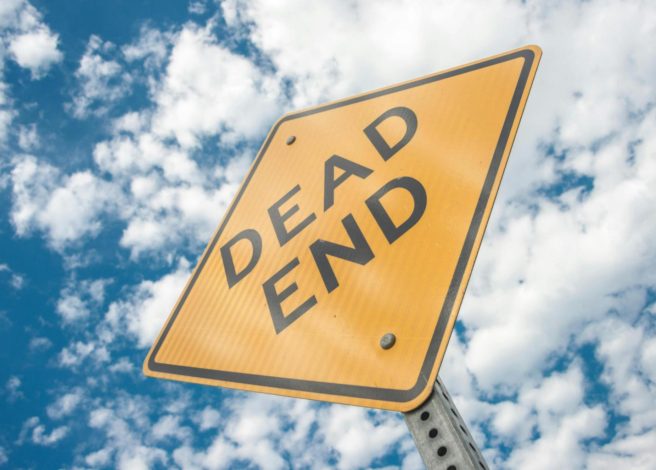Listen to the audio recording of this blog post or check out the featured Podcast about this topic.
At a Glance
- Packaging supplier warning signs include missing certifications, poor quality control, and resistance to audits, all of which signal misaligned priorities.
- Lack of traceability and inconsistent product quality across lots can lead to costly recalls or production delays.
- Unresponsive customer service or unclear ownership structure often means you won’t get support when issues arise.
- Proactive vetting — like site visits, sample testing, and reference checks — protects your brand and operations.
No food business professional wants that 3 AM phone call — the one where you learn a major shipment has arrived with compromised packaging. Thousands of dollars’ worth of food is at risk, and your brand’s reputation hangs in the balance. This nightmare happens more often than you might expect. The root cause is often simple: you overlooked key packaging supplier warning signs and ended up making the wrong choice.
For fifty years, we’ve partnered with food businesses nationwide. We’ve seen the steep costs when companies rely on manufacturers or distributors who fail to deliver as promised. When a packaging failure occurs — whether due to poor design, weak materials, or inconsistent quality — it’s more than just an inconvenience. A compromised package can lead to contamination risks, spoilage, or regulatory issues — directly impacting food safety. The consequences extend far beyond a single product; they can damage a brand’s reputation and erode customer trust for years to come.
Whether you’re working with plastic, glass, metal, or paper materials, your chosen supplier can make or break your business. Let’s explore the warning signs that could save you from a costly mistake.
Stagnant Suppliers Stall Your Success
 Think about how your product line has evolved over the past five years. Now ask yourself: Has your packaging supplier kept pace? One of the most alarming red flags is a manufacturer stuck in time. A stagnant supplier can directly hinder your business’s ability to innovate, adapt, and stay competitive. If your packaging supplier isn’t evolving alongside your product line, you’re at risk of falling behind in a market where consumer preferences, regulations, and industry standards are constantly shifting. Simply put: If they’re not keeping up with the program, it’s the “flip phone” of red flags.
Think about how your product line has evolved over the past five years. Now ask yourself: Has your packaging supplier kept pace? One of the most alarming red flags is a manufacturer stuck in time. A stagnant supplier can directly hinder your business’s ability to innovate, adapt, and stay competitive. If your packaging supplier isn’t evolving alongside your product line, you’re at risk of falling behind in a market where consumer preferences, regulations, and industry standards are constantly shifting. Simply put: If they’re not keeping up with the program, it’s the “flip phone” of red flags.
A supplier that isn’t investing in new materials, designs, or technologies may limit your ability to offer more sustainable, efficient, or eye-catching packaging. This can affect everything from customer perception to operational efficiency and compliance with evolving industry requirements.
Here are some signs that your manufacturer isn’t innovating:
- No new product launches in the past 3-5 years
- Still using outdated materials when newer, more efficient options exist
- Limited variety in packaging sizes and styles
- No improvements in tamper-evident features
- No ability to handle large-scale customization opportunities
- No sustainable material options
- Outdated manufacturing processes
The Packaging Supplier Doesn’t Prioritize Sustainability
“We’ll get to it eventually,” is no longer an acceptable answer regarding sustainability. Food business professionals feel the heat. Consumers and retailers are pushing for eco-friendly packaging. Demand for sustainable practices is increasing. But beware of suppliers who treat sustainability as a checkbox rather than a commitment. 
A supplier should describe clear and measurable steps to lower their environmental impact. This includes using energy-efficient production and recyclable materials. If your supplier thinks sustainability is only about reusing paper clips and turning off the lights at night, good luck. Your eco-conscious customers track their carbon footprint like it’s their daily step count.
The Packaging Supplier Doesn’t Have Quality Assurance Protocols
Here’s a sobering thought: It takes years to build a brand reputation and minutes to destroy it. Third-party audits and certifications, like SQF (Safe Quality Food), are more than just paperwork. They act as your safety net against compliance issues. If a supplier ignores these certifications or won’t share their quality control steps, your product’s safety is at risk. Here are some warning signs that a supplier doesn’t prioritize quality assurance:
- Missing or outdated quality certifications (SQF, FDA registration)
- No documented quality control processes or testing protocols
- Resistance to facility tours and quality audits
- Poor lot tracking and recall procedures
- Inconsistent product quality between shipments
Who Owns Your Supplier?
Let’s talk about something that probably isn’t on your radar when choosing a packaging supplier: ownership structure. Sure, it’s not as exciting as pricing or as obvious as quality, but ignore it at your peril. Private equity ownership is the speed dating of the business world — eager to commit, quick to change, and always looking for the next best thing. One day, you enjoy steady service and clear pricing; the next, a new owner appears. They have an MBA and a PowerPoint on “maximizing stakeholder value” (spoiler alert: you’re not the stakeholder they’re talking about). Suddenly, costs creep up, customer service takes a backseat, and product consistency wavers — all in the name of short-term returns. What was once a reliable partnership turns into a revolving door of priorities, where your needs are no longer the focus, but rather an afterthought in someone else’s exit strategy.
Family-owned manufacturers prioritize quality, service, and long-term relationships, offering personalized attention and consistency. With strong values and a reputation to uphold, they adapt quickly to customer needs while fostering trust and community loyalty. Many family-owned businesses nurture a culture of caring — meaning they are genuinely invested in the quality of the product and the satisfaction of its customers.
Poor Customer Service Is a Huge Red Flag
 Your packaging challenges don’t conveniently occur during business hours. When you’re facing a production crisis at midnight, will your supplier answer the phone? Technical support isn’t a luxury — it’s a lifeline.
Your packaging challenges don’t conveniently occur during business hours. When you’re facing a production crisis at midnight, will your supplier answer the phone? Technical support isn’t a luxury — it’s a lifeline.
The value of dedicated technical support extends far beyond troubleshooting. A strong customer service team should provide detailed product specifications, guide you through your process, help you select the product, get you in touch with the right resource, help optimize your packaging processes, and quickly resolve any quality concerns. They should understand your business needs and be able to provide solutions, not just answers. Look for suppliers who invest in their support teams through ongoing training and industry education. Trust us, you will know a good customer service team when you see one. And a bad service team can speak for itself — unless, of course, no one answers the phone. See the irony?
A Good Sign
The right packaging supplier is a strategic partner in your business’s growth. They should understand your industry’s challenges, anticipate market trends, and help you navigate regulatory requirements. They should be as invested in your success as you are.
When evaluating them, look beyond the sales pitch. Ask for references in your industry and make calls. Good suppliers should be able to offer you free samples that you can test before you buy to ensure the product is a good fit for your application. Also, push for detailed explanations of their quality control processes. Your due diligence today prevents emergencies tomorrow.
Remember: every time a consumer picks up your product, they’re not just buying food — they’re buying trust. Your packaging supplier plays a crucial role in maintaining that trust. Choose wisely because second chances are rare in the food business, and recovery from mistakes is expensive.
Do you want to know more about the manufacturing of plastic food packaging? Visit our Learning Center today and dive deep into a variety of topics.


